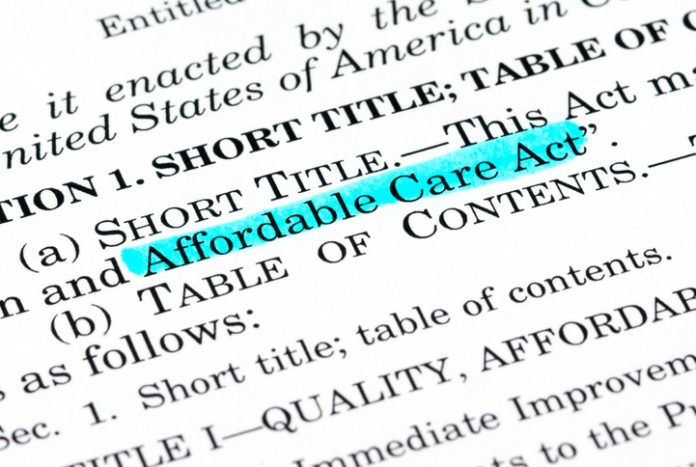Georgia’s Section 1332 “state innovation” waiver to mitigate the negative fallout of the Affordable Care Act (ACA), also known as “Obamacare,” appears to be in jeopardy.
Section 1332 is a provision of the ACA that allows states to implement innovative, market-based health coverage if their plans provide health care that does not add to the federal deficit, is as comprehensive and affordable as coverage without the waiver, and covers a comparable number of people. By harnessing the power of the free market, states can receive relief from Obamacare’s skyrocketing insurance premiums and dwindling choice of health insurance providers.
Waiver Restriction, Expansion
The Obama administration interpreted Section 1332 as severely restricting what a state can waive. The Trump administration greatly expanded it.
In a 2018 letter sent to governors, then-Centers for Medicare and Medicaid Services (CMS) Administrator Seema Verma announced the Trump administration issued new guidance to give states “greater flexibility to adopt new state health care programs, enhance consumer choice, and strengthen their health insurance markets.”
The guidance encouraged states to pursue waivers to provide increased access to affordable private-market coverage, encourage sustainable spending growth, foster state innovation, support those in need, and promote consumer-driven health care. In 2021, the Trump administration went a step further, codifying the rule to ensure its endurance.
States Responded, Benefited
Under these waivers, 16 states received reprieves from Obamacare’s skyrocketing insurance premiums and dwindling number of qualifying health insurance providers.
A Heritage Foundation report found average premiums declined after hitting their pre-waiver peak points in six states with Section 1332 waivers. Alaska experienced the most significant shift: average monthly premiums reached an astonishing $956 in 2017 before coming down by 23 percent, to $737, after the waiver took effect.
All four states where waiver programs began in 2019—Maine, Maryland, New Jersey, and Wisconsin—experienced net declines in average premiums that year.
Comprehensive Reform in Georgia
Georgia was the only state to implement a comprehensive waiver that took full advantage of the flexibilities the Trump administration’s expansion allowed.
In 2019, Georgia applied for a waiver to address the state’s problems with health care access.
“The high uninsured rate is attributed to a variety of factors including premium increases, low carrier participation in several counties across the state, and declining enrollment,” the state wrote in its application.
After much deliberation with CMS, Georgia settled on a two-part plan.
The first pillar established a reinsurance program to lower premiums by acknowledging that people with preexisting health problems are more expensive to insure than those who are healthy. Instead of giving everyone the same subsidies, Georgia structured its system so it could pool and redistribute its resources, thereby lowering premiums across the board.
The second pillar implemented the Georgia Access Model, which switched the state from a government enrollment infrastructure to a new platform that uses private-sector programs for a better, more accessible user experience.
Waiver in Crosshairs
The Biden administration appears intent on rolling back Section 1332 waivers, and Georgia is in its crosshairs.
In June, CMS Administrator Chiquita Brooks-LaSure sent a letter to Georgia Gov. Brian Kemp requesting an updated economic analysis of the state’s Section 1332 waiver. The letter informed Georgia the agency was establishing a new federal comment period before deciding whether the waiver still complied with the law. The CMS gave the state only 30 days to comply.
In its reply, Georgia pointed out the request was outside the Specific Terms and Conditions (STCs) governing the waiver. The state noted in its response the Biden administration “wish[es] to reopen approval of the waiver—an action not permitted by the STCs.” Georgia has asked to meet with the CMS for further clarification.
‘Trying to Undo’ Reform
According to Peter Nelson, a senior policy fellow at the Center of the American Experiment, the CMS is trying to revoke Georgia’s waiver.
“The reality is, Democrats have never championed waivers that truly promote state flexibility, despite what is included in the statute,” Nelson said. “The Obama administration issued guidance in 2015 that severely restricted what a state can waive under Section 1332. The Trump administration greatly expanded flexibility by issuing new guidance in 2018 and codifying much of the guidance in 2021. CMS is now trying to undo that in a proposed rule.”
Reversing the effects of Section 1332 would be a mistake, says Ed Haislmaier, a senior research fellow at The Heritage Foundation.
“The administration would be foolish to rescind current waivers or to not allow more states to apply for waivers,” Haislmaier said. “The problem is, the Biden administration is coming from the same perspective as the Obama administration, which is that they know best and they want everyone to follow the same set of rules that they determine.”
Calls for Public Opposition
Voicing opposition is vital to resisting the effort to reverse waivers, Nelson says.
Although the window to comment on CMS’ proposal to eliminate the 1332 flexibilities has closed, there will be more opportunities to engage in the public discussion, and Nelson says people should do so.
“Legislators and private citizens need to keep thinking about ways to improve their insurance markets, including through a 1332 waiver,” Nelson said. “It will be important to keep challenging this administration with new ideas and challenging them to justify why they are limiting state flexibility. Importantly, any new idea rejected by the Biden administration will then be ripe for a new administration to pick in the future.”
Real reform requires more than small changes, Haislmaier says.
“The whole system has to be overhauled, and that’s going to require Congress to act, and that’s not going to happen until conservatives retake Congress,” Haislmaier said. “We would essentially devolve a lot of this back to the states. Let the states take the money, and let them make their own choices.”
Madeline Peltzer (mpeltzer@hillsdale.edu) writes from Washington, D.C.




















